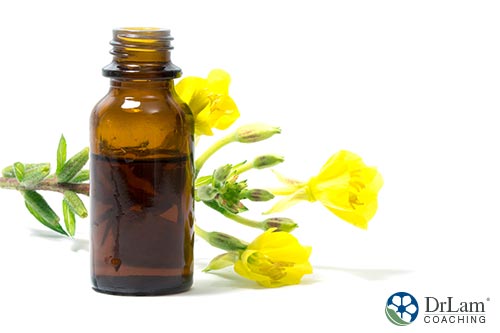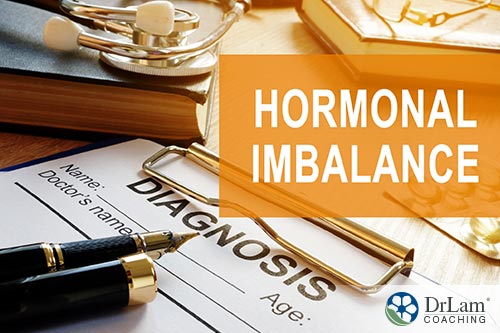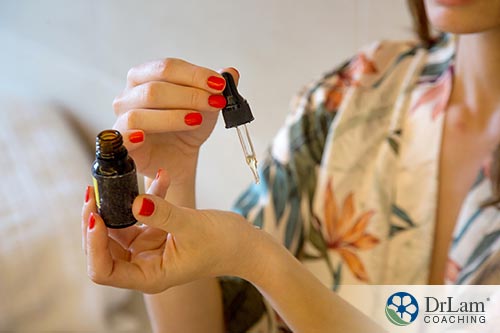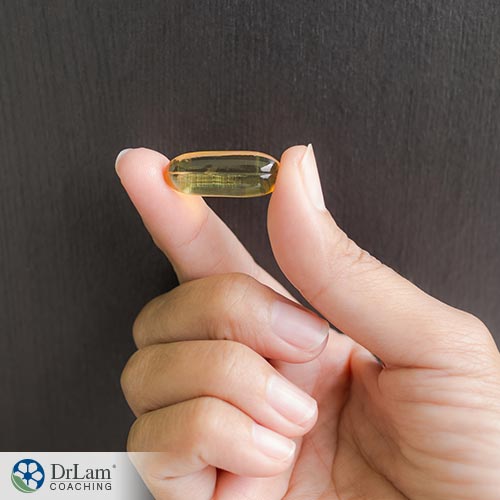 Many health issues in women like acne, premenstrual syndrome (PMS), and menopause may arise from hormonal imbalance. According to some holistic health practitioners, evening primrose oil may help with some of these conditions. However, the holistic health field does not believe in a quick fix. Instead, the body is seen as a whole and the field seeks to find and deal with the core reason for any health issue. But, evening primrose oil may give a bit of an advantage to the natural healing process.
Many health issues in women like acne, premenstrual syndrome (PMS), and menopause may arise from hormonal imbalance. According to some holistic health practitioners, evening primrose oil may help with some of these conditions. However, the holistic health field does not believe in a quick fix. Instead, the body is seen as a whole and the field seeks to find and deal with the core reason for any health issue. But, evening primrose oil may give a bit of an advantage to the natural healing process.
In women, the most common hormone imbalance is estrogen dominance, where your estrogen levels are high while progesterone levels are low in comparison. Literature increasingly seems to point to evening primrose oil as an effective hormone balancing tool.
But first, let us take a look at the two predominant female sex hormones, their function, and what can go wrong.
There are different forms of estrogen in a woman’s body, but collectively, they help with the development of the physical female characteristics, e.g. breasts and pubic hair, as well as the entire female reproductive system. In adult women, estrogen helps maintain reproductive health, and plays a beneficial role in cognitive and bone health, as well as your cardiovascular system function, among others.
Certain factors may play a role in estrogen levels, however. These include:
In women, estrogen is produced in the ovaries which forms part of the Hormone Circuit. Your Hormone Circuit, in turn, is governed by your body’s NeuroEndoMetabolic (NEM) stress response.
Progesterone is also a female sex hormone produced in the ovaries. It plays an important role in menstrual cycle regulation as well as in getting your body ready for, as well as maintaining, pregnancy. The hormone is also necessary for breast development and breastfeeding.
 Essentially, your estrogen and progesterone hormones work in synergy, each complimenting the other in their actions and interactions. For example, estrogen creates fluid retention while progesterone acts as a natural diuretic. The same applies to numerous other functions.
Essentially, your estrogen and progesterone hormones work in synergy, each complimenting the other in their actions and interactions. For example, estrogen creates fluid retention while progesterone acts as a natural diuretic. The same applies to numerous other functions.
But things can go wrong.
Certain factors may cause a decline in estrogen and progesterone levels in your body. Aging is one such factor.
As you get older, both your estrogen and progesterone levels drop. This is perfectly normal. But the problem is that your progesterone levels drop faster than your estrogen levels. So, while both your estrogen and progesterone levels may have dropped below what would normally be considered normal, you have what is known as estrogen dominance simply because of higher estrogen levels as compared to your progesterone levels.
Now, also take into consideration that progesterone is a precursor hormone, i.e. a hormone used in the formation of other necessary hormones, and you see your progesterone levels taking an ever-steeper dip. So, by the time you hit menopause, your progesterone levels would conceivably be much lower as compared to that of your estrogen.
One needs to also remember, however, that your adrenal glands, also part of your NEM response, usually bear the brunt when it comes to hormonal issues because. The reason for this is that as part of the Hypothalamic-Pituitary-Adrenal (HPA) axis they are one of the first responders when the NEM response springs into action. Furthermore, an estrogen-progesterone discrepancy indicates adrenal fatigue and a cortisol production issue synonymous with high levels of stress over a prolonged period.
The major causes of higher estrogen and lower progesterone levels include the following:
Evening primrose oil contains high quantities of gamma-linolenic acid, commonly referred to as GLA. Studies indicate that GLA, an omega-6 fatty acid commonly found in plants, helps with hormone balance by regulating prostaglandin production. Essentially chemical messengers involved in keeping hormone balance, prostaglandins also play a role in your body’s inflammatory process. Literature suggests that evening primrose oil tends to help raise progesterone levels in women. In so doing, it may help affect hormonal balance and essentially provide adrenal support.
Although primarily manufactured in your sex organs, your adrenal glands also manufacture smaller quantities of these hormones. In those suffering from adrenal fatigue, their estrogen and progesterone production in the adrenals can be dysregulated, leading to imbalances.
In addition to this, your adrenal glands produce up to 35% of hormones in premenopausal females and up to an astonishingly 50% in postmenopausal hormones. This means that those suffering from adrenal fatigue are at a high risk of developing a hormonal imbalance.
The hormone modulating effect of evening primrose oil may help with this imbalance. Some sufferers may have estrogen-deficient like symptoms, and evening primrose oil can have weak estrogenic properties and thus able to support a gentle boost in estrogenic effect. this may or may not be desirable, depending on the symptoms and the presentation. Do remember, though, that a hormone imbalance in those suffering from adrenal fatigue can result from a variety of factors, from an initial higher cortisol production during the first stages of the condition to the possible shunting of progesterone towards other adrenal hormones, resulting in estrogen dominance.
If suffering from adrenal fatigue combined with hormonal imbalance, please first talk to a healthcare professional who could advise on the supplement’s suitability. This may depend on the stage of adrenal fatigue currently experienced.
Because of its hormone-balancing and anti-inflammatory properties, evening primrose oil may help combat various female health issues related to hormones or inflammation.
 The GLA in evening primrose oil may reduce inflammation from various skin disorders while helping with moisture retention. Studies show it may help reduce the occurrence of acne as well as eczema when used topically or in capsule form.
The GLA in evening primrose oil may reduce inflammation from various skin disorders while helping with moisture retention. Studies show it may help reduce the occurrence of acne as well as eczema when used topically or in capsule form.
Furthermore, it may also help improve your skin’s elasticity and firmness. This is because the GLA may help improve skin structure and function.
The symptoms relating to PMS are usually the result of hormone imbalance. Studies show that evening primrose oil may help address various PMS symptoms, including bloating, irritability, and depression.
Evening primrose oil may also supply relief from breast pain, another common PMS symptom, according to a 2010 study.
Hot flashes are a common symptom of menopause. Literature indicates that evening primrose oil may help reduce the severity and frequency of hot flashes.
Hormonal imbalance is one of the symptoms of an endocrine disorder leading to high blood pressure. Research suggests that the use of evening primrose oil may reduce your risk of high blood pressure. In so doing, it may help maintain or improve heart health.
Furthermore, heart disease has a high element of inflammation attached. The anti-inflammatory properties of evening primrose oil may help with this.
Heart disease is one of the symptoms of adrenal fatigue, just like the various issues already mentioned.
The GLA in evening primrose oil may help address neuropathy symptoms common in diabetes and other conditions associated with adrenal fatigue and hormonal imbalance. It may help address feelings of weakness and numbness, temperature sensitivities, and tingling in the extremities.
Research suggests that evening primrose oil may help reduce the bone pain often associated with an autoimmune disorder like rheumatoid arthritis. Autoimmune disorders are also associated with adrenal fatigue and hormonal health.
Most people can take evening primrose oil without any side effects. Some people, however, may find that using the oil could result in a headache, nausea, dizziness, rashes, or even an upset stomach. Furthermore, people taking anticoagulant medications increase their risk of bleeding while those taking drugs for schizophrenia or psychotic disorders may increase their risk of nausea, vomiting, or even seizures.
People suffering from adrenal fatigue should also be cautious when taking supplements because they may impact their condition depending on their adrenal health. It may thus cause an adrenal crash. Because of this, you should rather first talk to your healthcare practitioner before embarking on a course of evening primrose oil. Your healthcare practitioner is best able to advise you about its suitability and dosage.
However, for those seeking a recommendation for an Evening primrose oil supplement, we suggest you consider EPO Pro. The omega-6 fatty acids in this supplement:
The gamma-linolenic acid (GLA) in EPO Pro may help address a variety of skin conditions, diabetic neuropathy, and even conditions relating to heart disease.
If you are dealing with hormone imbalance issues, here are a few things you can do to help alleviate the situation.

Evening primrose oil may have many health benefits due to its anti-inflammatory properties and its ability to help stabilize hormones. However, some people may have adverse reactions to its use, while the oil may also have contraindications when used with certain medications.
If you would like to know more about or need assistance with the use of evening primrose oil, the team at Dr. Lam Coaching can help. We offer a free** no-obligation phone consultation at +1 (626) 571-1234 where we will privately discuss your symptoms and various options. You can also send us a question through our Ask The Doctor system by clicking here.
The answer is not a clear one. While evening primrose oil may help address hormonal and inflammatory issues associated with adrenal fatigue, usage of the oil depends on the stage of your condition. Each person is different, and if it's used during the latter stages, an adrenal crash might occur.
